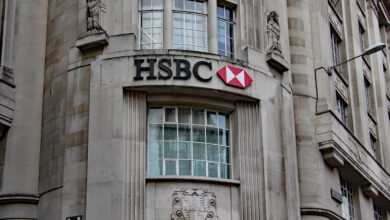Tykn’s Blockchain app making the invisible children of this world Visible

Tey El-Rjula Co-founder of Tykn tech is a man on a mission. Once a Syrian refugee himself living in the Netherlands, Al Rujula understands what it means to be a man without an identity. Today he is working to create what he calls the future of a resilient identity so that the invisible children around the world can become invincible.
UNLOCK spoke with Tey about his mission and the Blockchain platform he has built. The project is called Zero Invisible children (ZINC) that aims to permanently certify the identity of children in conflict zones by leveraging Blockchain technology. As he explains, “We are working with the Ministry of Interior and justice here in the Netherlands as well as the Netherland’s Red Cross 510 initiative to use big data to ensure a more cost effective humanitarian aid.
Both Tykn and 510 are researching the potential of Blockchain to improve cash based assistance using a digital wallet that can transfer money faster to those in need. The pilot is being carried out in the island of Saint Martin in the Caribbean. As Tey states, “We chose this project after hurricane Erma and the need for aid.” Under the auspices of the Dutch government which is financing the relief aid on the island they wanted to ensure that the money being provided was going into the right hands. According to Tey, “Once displaced and homeless are registered through our Ana mobile application they will always be registered and, no database failure or human error can change this.”
Tey wants to bring this Blockchain agnostic application close to home. In February last year Tey and his team visited a Syrian refugee camp in Lebanon, noticing that a grand majority of people owned a smart phone in the camp Tey realized that this was the gateway to the solution these people deserved. As he explained, “Confirming identities is very hard so we are working with trusted parties such as the Dutch government and Red Cross to identify those who are refugees put them on the Blockchain and then the Red Cross uses the mobile application to identify them in the future.”
As for the technology is will be a plug in into Ethereum and will use public and private keys on the phones as an application. The ANA application can work offline based on cryptographic signatures using NFS tags with a private key on the phone. Recently ZINC project one first place in the Spindle Innovation Awards. As Tey explains, “Tyken as one of the founding stewards of Sovrin network is using distributed ledger technology to create a digital identity that is interoperable, distributed, and above all resilient. Digital identities within Tykn’s ANA Ecosystem are distributed and entirely owned by the individual, with the user deciding how much information they wish to share with another party and how and when to update the information given in the creation of the digital identity.”
According to Tey, “We are offering NGOs, governments, health care providers a Blockchain as a service platform. In the future we believe that birth certificates will be on the Blockchain and all forms of identification will be digitized. But this will need regulatory changes; even today in Europe voting is still carried out on paper because of the laws. So we started our project working with the Red Cross and hope to expand as regulations and laws are amended.”
This month Tykn will be releasing its whitepaper and two yellow technical papers to explain ANA in-depth.





